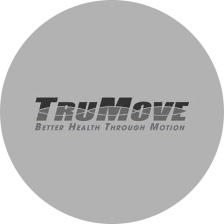Blog
February 7, 2023
Inflammatory Foods: 8 to Avoid & Alternatives

Inflammation is a major concern for many people, and for good reason. Research has linked chronic, low-grade inflammation with numerous health problems, including heart disease, cancer, diabetes, and Alzheimer’s disease. While many people focus on adding anti-inflammatory foods to their diet, it’s just as important to reduce the foods that trigger and aggravate existing inflammation.
Here are eight of the top foods that cause inflammation and how to limit them.
Added sugars
Added sugars are a significant contributor to inflammation, which increases the risk of chronic diseases like obesity, diabetes, and heart disease. Unfortunately, added sugars are prevalent in many food products, including salad dressings, condiments, and savory snack foods.
How to limit: The American Heart Association recommends limiting added sugars to no more than 6 teaspoons (25 grams or 100 calories) per day for women and no more than 9 teaspoons (36 grams or 150 calories) for men. Food labels now include added sugars, making it easier to track.
Processed meats
Processed meats like bacon, hot dogs, pepperoni, and lunch meats are often cured with salt and synthetic nitrates and are high in saturated fat. A 2022 study published in the Journal of Nutrition linked regular consumption of processed meats to an increased risk of inflammation, which is believed to be a result of both nitrates and saturated fats.
How to limit: Limit overall consumption of processed meats. When you do eat processed meats, opt for “uncured” meats treated with salt instead of nitrates.
Highly processed foods
Highly processed foods are often loaded with chemicals, artificial colors, flavorings, and preservatives that can trigger and exacerbate inflammation.
How to limit: Choose minimally processed convenience foods with short ingredient lists that include ingredients you recognize and can pronounce.
Refined carbs
Refined carbs, such as pasta, white rice, bread, and other carb-rich foods, can cause a quick and significant increase in blood sugar, which can lead to increased inflammation.
How to limit: Choose whole grains and 100% whole-grain products, and get complex carbs from beans, peas, sweet potatoes, and starchy vegetables that are also high in fiber and nutrients.
Omega-6s and insufficient omega-3s
Americans are overconsuming omega-6 fatty acids due to the heavy use of vegetable oils like corn, soybean, and sunflower in processed and convenience foods, and under consuming omega-3 fatty acids, which are anti-inflammatory. This imbalance can contribute to low-grade systemic inflammation.
How to limit: Increase consumption of omega-3s by eating fatty fish like salmon or mackerel, walnuts, flaxseeds, and chia seeds. Limit the use of vegetable oils and choose healthier oils like olive or avocado oil.
Fried foods
Fried foods are often high in trans fats and advanced glycation end products (AGEs), which can trigger and worsen inflammation.
How to limit: Limit consumption of fried foods and choose healthier cooking methods like baking, grilling, or sautéing.
Alcohol
Alcohol consumption has been linked to increased inflammation, particularly in the gut.
How to limit: Limit alcohol consumption to moderate levels, and choose healthier options like red wine, which has been shown to have some anti-inflammatory properties.
Dairy
Some people are intolerant to lactose and casein, two components of dairy, which can trigger inflammation in the gut.
How to limit: Limit or eliminate dairy products, and choose alternatives that are lactose and casein-free, such as plant-based milk (soy, almond, oat, etc.), lactose-free dairy products, and casein-free dairy substitutes. It’s also helpful to read ingredient labels and watch for hidden sources of lactose and casein, such as processed foods and baked goods. Consulting a healthcare professional can also provide more personalized guidance and recommendations for managing lactose and casein intolerance.
Solution Options
If you are serious about hitting your nutrition goals this year, our 90-day Nutrition and Movement Kickstarter package might be perfect for you. It all starts with a free consultation. Find out more about our KICKSTARTER PACKAGE HERE. You can also schedule a free consult with our nutrition team anytime with our ONLINE SCHEDULE FORM.



 Overland Park
Overland Park









